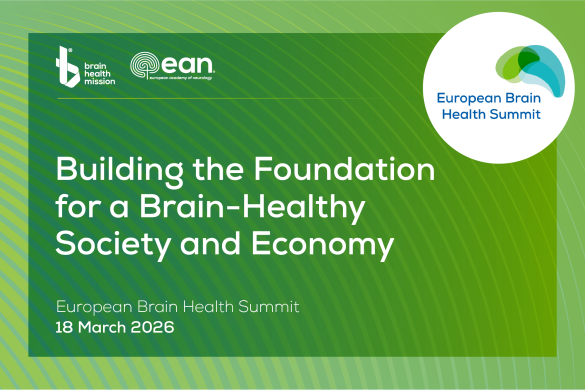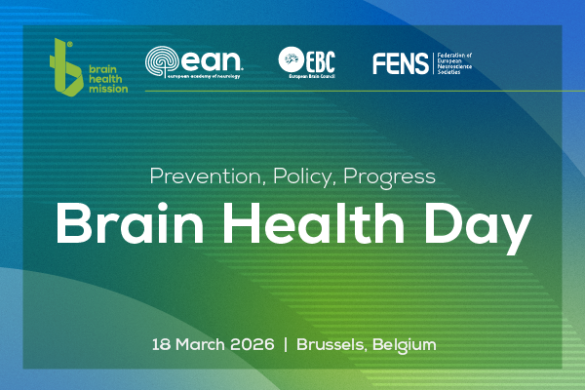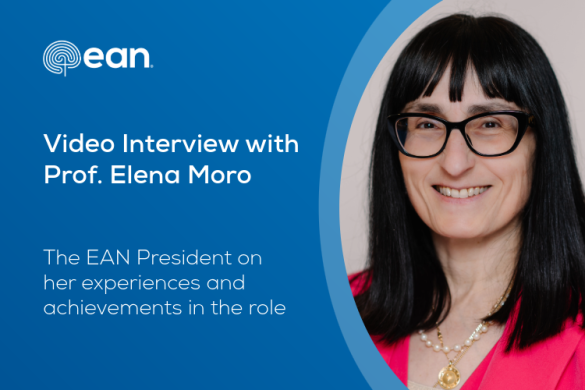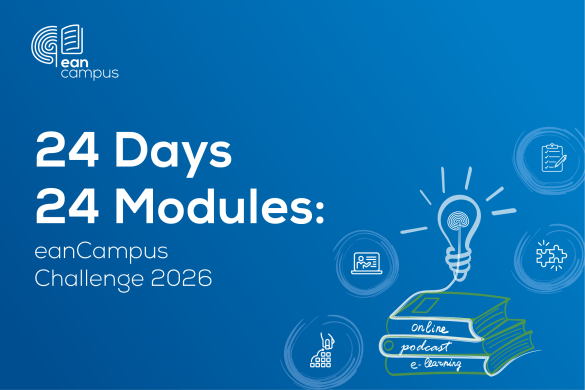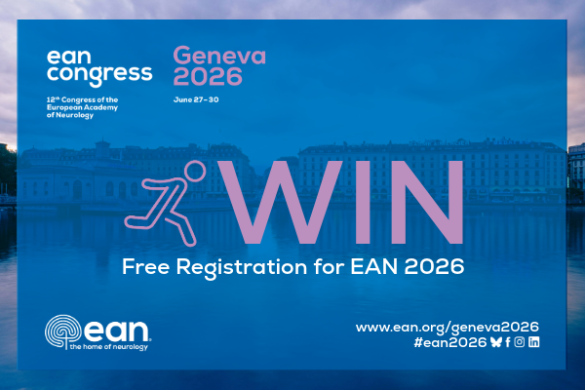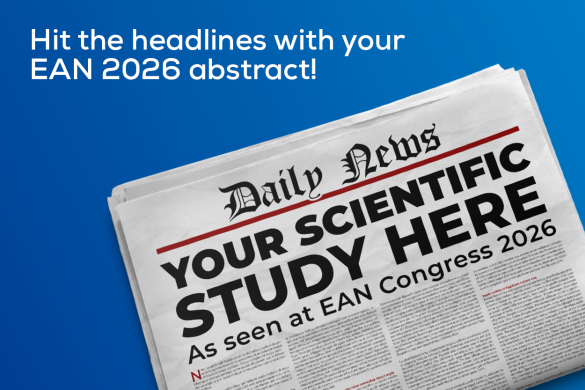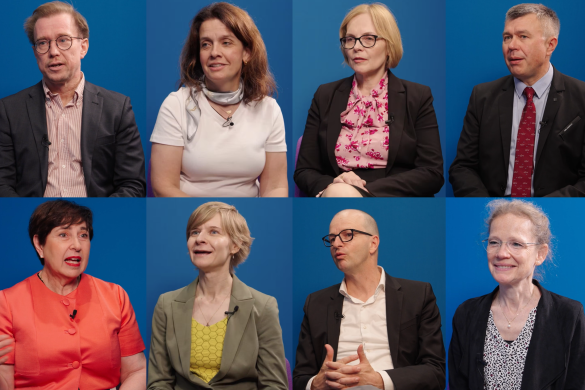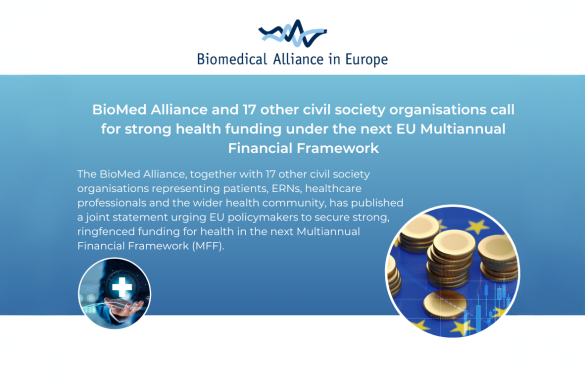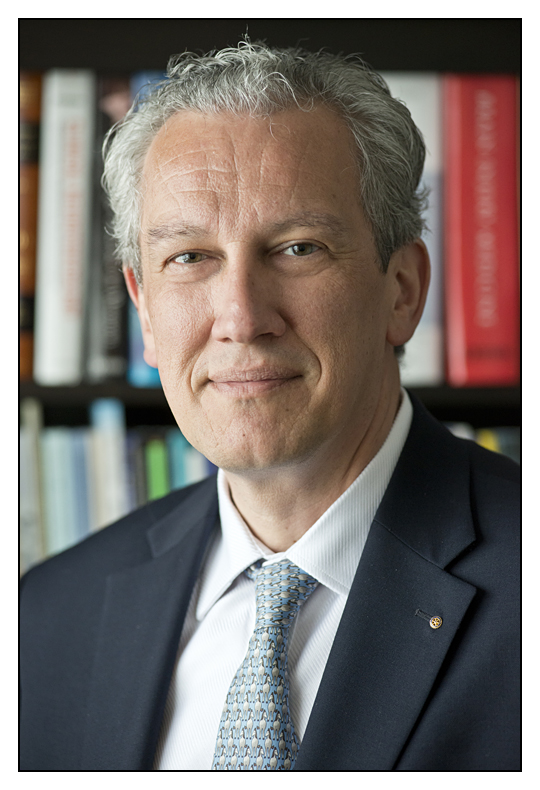 Franz Fazekas (FF): Dear Prof. Boon, as Chair of the Programme Committee of the 3rd Congress of the EAN, can you briefly illustrate the overarching theme and structure of the programme that you and your colleagues have put together?
Franz Fazekas (FF): Dear Prof. Boon, as Chair of the Programme Committee of the 3rd Congress of the EAN, can you briefly illustrate the overarching theme and structure of the programme that you and your colleagues have put together?
Paul Boon (PB): The overarching theme chosen for the Amsterdam congress is “Outcome measures in neurology”. There are many reasons why this theme was chosen. Outcome measurement is increasingly important in clinical neurology diagnosis and treatment because it provides crucial information relevant evidence-based, rational and effective patient management. This is particularly relevant in the value of treatment discussion that is becoming increasing important in health care policies throughout Europe. Moreover, the Dutch neurological community has contributed significantly to the outcome measure literature, so putting this overarching theme forward will also allow our local colleagues a greater visibility.
FF: This year too, the EAN congress will host named lectures. We are already excited to hear which clinician-researchers and scientists have been chosen for Amsterdam. Can you explain the origin of these lectures and the meaning behind these?
PB: EAN as a society wants to highlight major contributions to the field of neurology and clinical neuroscience by top key opinion leaders from Europe by giving them the opportunity to deliver keynote lectures. These lectures, which are the core of the Presidential Symposium, aim bringing to the stage only the very best and should be seen as the ultimate recognition by our society of the highest level of personal achievement and acting as role models for neurologist in Europe.
FF: Within this exceptional scientific and educational setting, reaching out to the young neurologists is a priority. How would you describe EAN’s efforts to facilitate their participation and active engagement in the congress?
PB: Numerous changes and innovations in the congress organisation and programme aim at facilitating access for young neurologist. This varies from lower congress fees for juniors, setting up special training sessions and educational opportunities to teach juniors to write better abstracts and a variety of basic teaching courses and hands-on sessions. Moreover, EAN encourages young neurologists participating actively in the activities and bodies of the society such as the scientist panels.
FF: From the congress programme and the impressive list of speakers, it becomes clear that EAN attempts to reach out to the neurologic community far beyond Europe’s borders. How do you and the Programme Committee value this scientific exchange and cooperation?
PB: While obviously showcasing European neurology during the annual congress, EAN will keep inviting international leaders from outside Europe with the main purpose of offering the congress participants the best available and most recent and relevant content. We want our congress to have the connotation of the “yearly place to be” if one wants to learn about global developments in neurology and meet the largest possible sample of colleagues from all over Europe and beyond. We greatly value our collaboration with the American Academy of Neurology and other major neurological communities outside Europe.
FF: The programme of the 3rd EAN Congress is very rich and will for sure attract many to take part. Which is the symposium or lecture that you will not miss and why?
PB: Besides the Presidential Symposium, I would recommend the plenary session on “Outcome measures in Neurology” and the Highlights session that will be taken care of by the selected group op leading neurologists from the Low Countries and that will provide a compilation of key information from the entire congress. Visiting these plenary sessions will most likely be highly informative. This should obviously be combined with visiting some of the symposia, the entirely new hands-on and controversy sessions and some of the more focused workshops and teaching courses, which we hope will satisfy even the most demanding congress participant.
Welcome to EAN Amsterdam 2017.
Prof. Franz Fazekas





